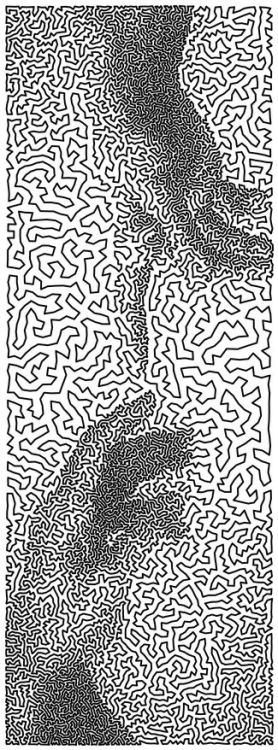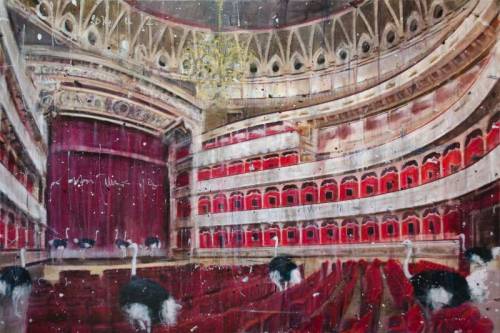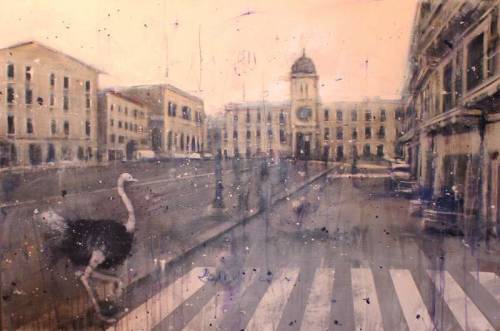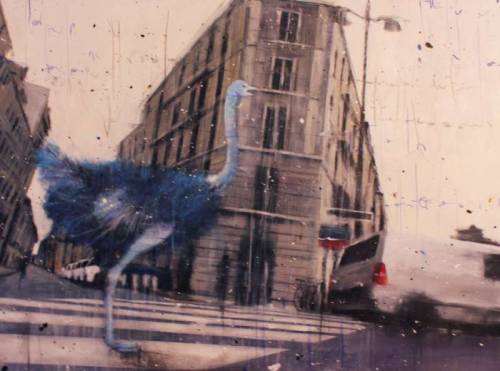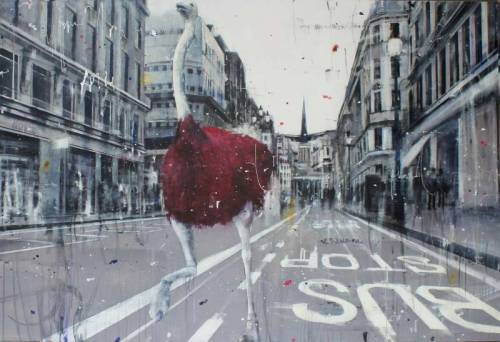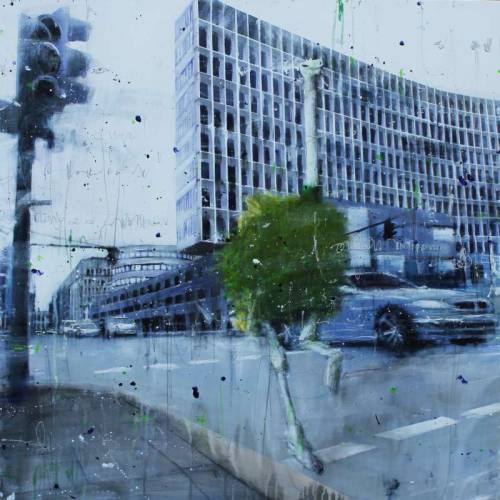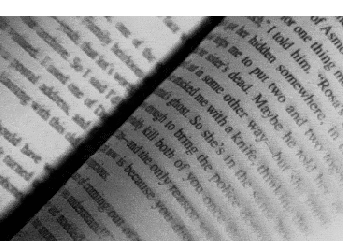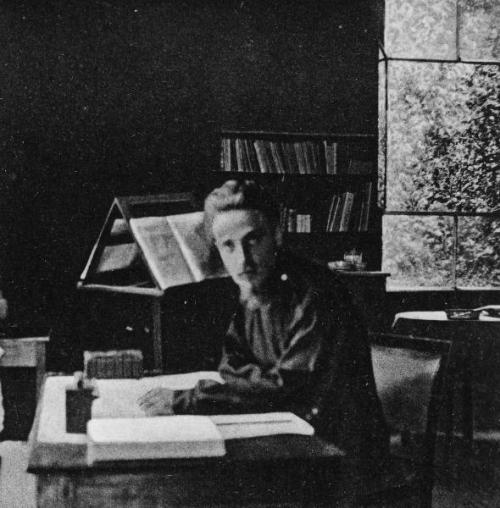
martedì 30 aprile 2019
"I am afraid, afraid, and dare not admit what I am afraid of. This goes for everything."
- Boris Pasternak, in a letter to Marina Tsvetayeva, Letters, Summer 1926: Pasternak, Tsvetayeva, Rilke
(via soracities)
donna-in-visibile: Lo scrittore lavora da solo e deve ogni giorno affrontare l'eternità o la...
Lo scrittore lavora da solo
e deve ogni giorno affrontare
l'eternità
o la mancanza di eternità.
- Ernest Hemingway
doppisensi: “Lotti coi sogni come con la vita senza senso né forma, cercando un disegno, un percorso...
“Lotti coi sogni come con la vita senza senso né forma, cercando un disegno, un percorso che deve pur esserci, come quando si comincia a leggere un libro e non si sa ancora in quale direzione ti porterà. Quello che vorresti è l'aprirsi d'uno spazio e d'un tempo astratti e assoluti in cui muoverti seguendo una traiettoria esatta e tesa; ma quando ti sembra di riuscirci t'accorgi d'essere fermo, bloccato, costretto a ripetere tutto da capo.”— Italo Calvino, Se una notte d'inverno un viaggiatore
"Mai mettere a confronto i sogni con la realtà."
- Luigi Malerba - Itaca per sempre
(via perpassareiltempo)
Ah, ok! Sorry, I'm a bit new to writing. I guess both are just information dumps, but when I thought about it I was thinking about how Narration is typically in the beginning of the movie/book, trying to explain the lore, versus some writings where two characters would be dialoguing and the lore comes up in conversation? (Again, new to writing, I'm sorry if this doesn't make sense!)
Which is Better: Exposition or Expository Dialogue?
For those of you who aren’t following this, here is Anonymous’ original question & my original answer:
Q: Hi! I was curious about Narration vs Exposition? Is one better than the other, or is it conditional?
A: Hmm. That depends on what you mean by “narration” and “exposition.” I’ve seen them used pretty much synonymously. But if you give me your definitions, I’ll tell you which to use where, and what one is better :)
Ahhhhhhhhh. Ok, so what you’re talking about is the difference between exposition, expository dialogue, and dialogue.
Exposition is when the author or narrator tells the reader something directly (lore, backstory, info, etc.). This can happen in a preface, as you mentioned, or anywhere in the book.
Expository dialogue is a slightly pejorative term for when one or more characters delivers the same information above. If done well, this can work. But it can easily be done badly. It basically becomes a lazy way for the author to deliver exposition without it technically being exposition, because it has quotation marks around it.
Regular dialogue, on the other hand, is a great tool for writers to give information to readers without boring them. The trick is this: Does the character have a reason to tell the other character this information? Or are they telling each other something they already know for the benefit of the reader?
This is why the trope of the naive child or the new-kid-on-the-block is so common, particularly in fantasy stories. It doesn’t seem clunky or boring when Ron explains stuff to Harry, because Harry legitimately doesn’t know.
So. To the question of whether exposition or working the information in naturally through dialogue is the better choice, I’d lean toward the latter. With the caveat that for highly complex fantasy stories, readers have a higher tolerance for straight-up exposition, and sometimes it’s just not feasible to work every-single-thing into dialogue. There’s a balance.
Suggestion: Take out your favorite fantasy book and mark how and where the author delivers world information to the reader. Then take out a fantasy book you felt was really boring, and do the same thing. If you do this a few times, you’ll get a sense of what YOU prefer as a reader, which can help you figure out how you might prefer to do things as a writer.
Hope this helps! And no worries about not knowing the terms. Even among experienced writers, we’re all just making the words up anyway. That’s why I often ask for clarification so I know I’m on the same page with someone :)
//////////////
The Literary Architect is a writing advice blog run by me, Bucket Siler. For more writing help, check out my Free Resource Library, peruse my post guide, or hire me to edit your novel or short story. xoxo
"Ti ringrazio, cuore mio: mi sono svegliata di nuovo e benché sia domenica, giorno di riposo, sotto..."
mi sono svegliata di nuovo
e benché sia domenica,
giorno di riposo,
sotto le costole
continua il solito viavai prefestivo.”
- Wislawa Szymborska, Al mio cuore, di domenica (via falpao)
lunedì 29 aprile 2019
"And Lot’s wife, of course, was told not to look back where all those people and their homes had..."
- Kurt Vonnegut, Slaughterhouse-Five (via quotespile)
"Sometimes human beings have to just sit in one place and hurt."
- David Foster Wallace; Infinite Jest (via sunsetquotes)
iosonorockmaballoiltango: Né la minuzia simbolica di sostituire un tre con un due né quella metafora...
Né la minuzia simbolica
di sostituire un tre con un due
né quella metafora inutile
che convoca un attimo che muore e un altro che sorge
né il compimento di un processo astronomico
sconcertano e scavano
l’altopiano di questa notte
e ci obbligano ad attendere
i dodici e irreparabili rintocchi.
La causa vera
è il sospetto generale e confuso
dell’enigma del Tempo;
è lo stupore davanti al miracolo
che malgrado gli infiniti azzardi,
che malgrado siamo
le gocce del fiume di Eraclito,
perduri qualcosa in noi:
immobile.
Jorge Luis Borges
iosonorockmaballoiltango: Trovare profonde tutte le cose - questa è una caratteristica scomoda; fa...
Trovare profonde tutte le cose - questa è una caratteristica scomoda; fa sì che ci si sforzino costantemente gli occhi e, alla fine, si trovi sempre di più di quanto non si desiderasse.
Friedrich Nietzsche
myborderland: «È così che ci si perde per strada, che si diventa brutte copie di se stessi....
«È così che ci si perde per strada, che si diventa brutte copie di se stessi. Smussandosi, modificando il senso delle cose che si fanno (come ridere per non parlare, appunto), tradendo le proprie convinzioni o lasciando che l'altro le offenda, o le svaluti, praticando la mansuetudine, considerando fisiologico, inevitabile e forse perfino giusto che il passare del tempo snaturi gli aspetti più autentici del carattere, ridimensioni gli interessi, spenga le passioni, i desideri e soprattutto il desiderio».“
Diego De Silva, Mancarsi
domenica 28 aprile 2019
punti-disutura: “Ma è bene se la coscienza riceve larghe ferite perché in tal modo diventa più...
“Ma è bene se la coscienza riceve larghe ferite perché in tal modo diventa più sensibile a ogni morso. Bisognerebbe leggere, credo, soltanto libri che mordono e pungono. Se il libro che stiamo leggendo non ci sveglia come un pugno che ci martella sul cranio, perché dunque lo leggiamo? Buon Dio, saremmo felici anche se non avessimo dei libri, e quei libri che ci rendono felici potremmo, a rigore, scriverli da noi. Ma ciò di cui abbiamo bisogno sono quei libri che ci piombano addosso come la sfortuna, che ci perturbano profondamente come la morte di qualcuno che amiamo più di noi stessi, come un suicidio. Un libro deve essere un’ascia per rompere il mare di ghiaccio che è dentro di noi.”— Franz Kafka, da una lettera a Oskar Pollak, Novembre 1903.
lunedì 22 aprile 2019
ilmiosilenzionelleparole: Dimenticami ora, ma ricordami poi, quando l'amaro si sarà...
Dimenticami ora, ma ricordami poi, quando l'amaro si sarà sciolto.
Vladimir Nabokov
wander–to–wonder: Armchair Books, Edinburgh | Emily Howarth
covergirlsanddancingcavaliers: Spellbound (1945)with Ingrid...
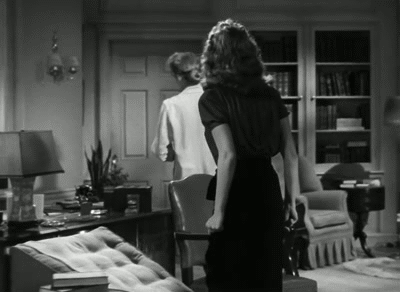
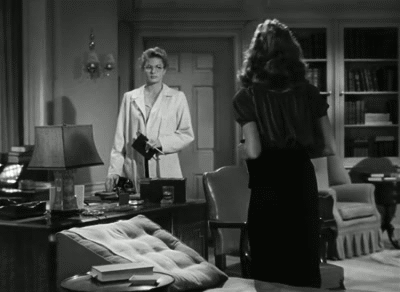
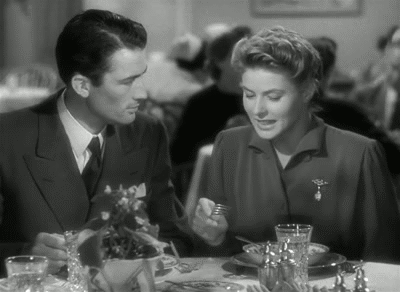
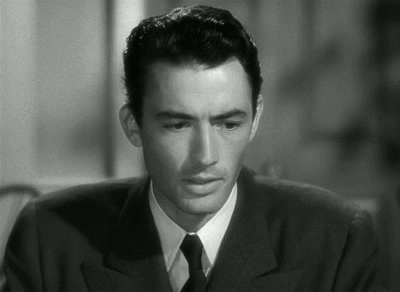
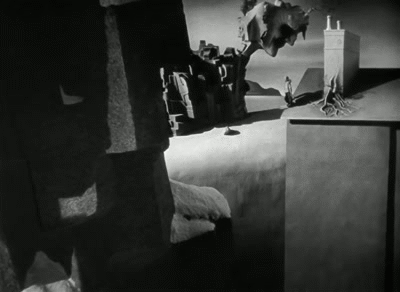
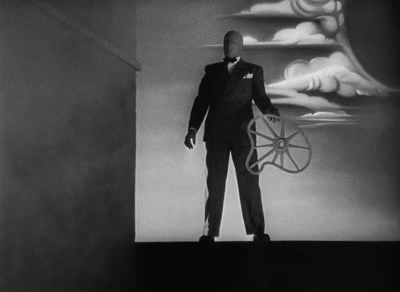
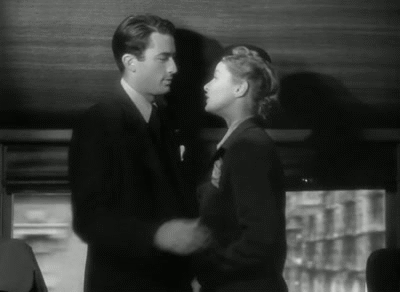
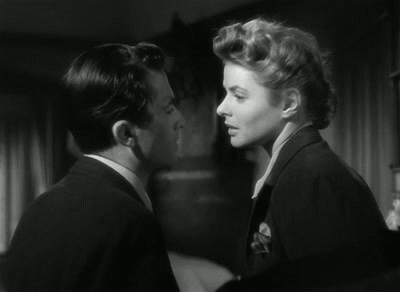
covergirlsanddancingcavaliers:
Spellbound (1945)
with Ingrid Bergman and Gregory Peck. directed by Alfred Hitchcock,
dream sequence design by Salvador Dali
Because Hitchcoc: Io ti salverò
iosonorockmaballoiltango: Non rinunciare mai. Hai tante cose dentro di te, e la più nobile di...
Non rinunciare mai.
Hai tante cose dentro di te,
e la più nobile di tutte, il senso della felicità.
Ma non aspettarti la vita da un uomo,
per questo tante donne s'ingannano.
Aspettala da te stessa.
Albert Camus
mroblivion: “Dove sei tu, luce, è il mattino.” — C. Pavese
"It was one of those March nights when it is as if winter wants to claim its own back and with..."
- From “War and Peace” by Leo Tolstoy. (via balltillifall)
Best Writing Advice Ever
Just write the damn thing.
Don’t worry about literally anything. A n y t h i n g
Just get it written.
The rest can be peacefully sorted out later.
myend-ismybeginning: Source. Cloister library, Wittem,...
muccamuffa: Le parole sono vive, entrano nel corpo, bucano la pancia: possono essere pietre o bolle...
Le parole sono vive, entrano nel corpo, bucano la pancia: possono essere pietre o bolle di sapone, foglie miracolose. Possono fare innamorare o ferire. Le parole non sono solo mezzi per comunicare, le parole non sono solo il veicolo dell'informazione, come la pedagogia cognitivizzata del nostro tempo vorrebbe farci credere, ma sono corpo, carne, vita, desiderio. Noi non usiamo semplicemente le parole, ma siamo fatti di parole, viviamo e respiriamo nelle parole.
Massimo Recalcati - L’ora di lezione
"I like observing people. I like looking at things."
molecoledigiorni: Nei presentimenti non credo, e i presagi non temo. Non fuggo la calunnia né il...
Nei presentimenti non credo,
e i presagi non temo.
Non fuggo la calunnia né il veleno,
non esiste la morte:
immortali siamo tutti, e tutto è immortale.
[..]
La mia immortalità mi basta,
ché da secolo in secolo scorre
il mio sangue..
Per un angolo sicuro di tepore
darei la vita di mia volontà
qualora la sua cruna alata
non mi svolgesse più,
come un filo,
per le strade del mondo.
- Andrej Tarkovskij
wordsthat-speak: “Nobody has ever measured, not even poets, how much the heart can hold.” — Zelda...
“Nobody has ever measured, not even poets, how much the heart can hold.”— Zelda Fitzgerald
